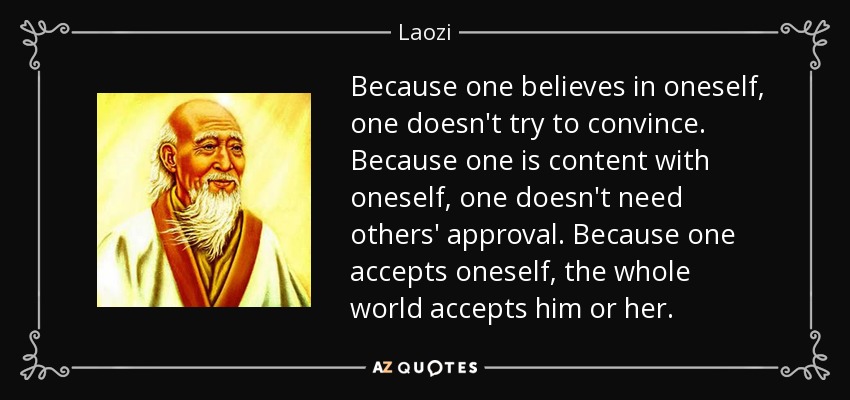
Are you curious if a will exists for free? Look no further! In this article, we will provide you with valuable search tips to help you uncover the truth.
By understanding the importance of a will search and utilizing various resources such as public records, online databases, and probate courts, you can increase your chances of finding the information you need.
Don’t hesitate – start your search today and discover if a will exists, all without spending a dime.
Understanding the Importance of a Will Search
If you want to protect your loved ones and ensure your wishes are carried out after your passing, it’s important to understand the significance of conducting a will search.
A will search is the process of finding out if a deceased person left behind a valid will. By conducting a will search, you can determine if there are any instructions or provisions that need to be followed. This can help avoid disputes and confusion among family members and beneficiaries.
Additionally, a will search can provide peace of mind, knowing that your loved ones will be taken care of according to your wishes. It’s crucial to conduct a will search to ensure that all legal requirements are met and that your assets are distributed as you intended.
Exploring Public Records for Will Information
To begin your search for will information, you can explore public records for any available records of wills. Public records can provide valuable information about the existence of a will and its contents.
One way to access public records is by visiting the local courthouse or probate court in the county where the deceased person lived. These courts often maintain records of wills and probate proceedings. You can request to view these records in person or access them online if available.
Additionally, some states have online databases where you can search for wills and probate records. These databases may require you to provide the deceased person’s name and other relevant details.
Exploring public records is a good starting point in your search for will information as they can provide crucial leads and insights.
Utilizing Online Will Registries and Databases
You can also utilize online will registries and databases to aid in your search for a will. These online resources can provide a convenient and efficient way to access information about wills.
Start by searching for reputable online will registries and databases that are specific to your country or region. These platforms often allow you to search for wills by entering the deceased person’s name, date of death, or other relevant details.
Once you input the necessary information, the database will generate a list of potential matches. Take the time to carefully review the results and determine if any of the listed wills belong to the person you’re searching for.
Remember to cross-reference the information you find with other sources to ensure accuracy.
Contacting Probate Courts for Will Documentation
Once you have exhausted online resources, consider contacting probate courts in your area for will documentation. Probate courts are responsible for overseeing the administration of estates, including the handling of wills.
To begin your search, find the contact information for the probate court in the county where the deceased person lived or owned property. Give them a call or send an email explaining your situation and requesting any information they may have regarding the existence of a will. Be prepared to provide the person’s full name, date of death, and any other relevant details.
The probate court staff will be able to guide you on the process, including any necessary forms or fees. Keep in mind that each probate court may have different procedures, so it’s important to follow their instructions carefully.
Reaching Out to Family Members and Executors
Now it’s time to reach out to your family members and the executor to find out if a will exists.
Start by contacting your immediate family members and ask if they’ve any knowledge of a will.
If they don’t, you can then reach out to the executor named in the deceased person’s estate plan to inquire about the existence of a will.
Family Member Inquiries
To gather more information about the existence of a will, consider reaching out to your family members or the executors involved.
Family members can provide valuable insights and may have knowledge about the existence of a will. Start by contacting close family members such as parents, siblings, or children. They may have been involved in discussions about the will or have access to important documents.
Executors, on the other hand, are responsible for administering the estate and may have information about the existence and location of the will. If you’re unsure about who the executor is, you can search public records or contact the probate court in the jurisdiction where the deceased resided.
Remember to approach these inquiries with sensitivity and respect, as discussing a will can be a sensitive matter for some individuals.
Contacting the Executor
First, reach out to the executor or any family members who may have information about the will. The executor is the person responsible for administering the deceased person’s estate, including carrying out the instructions in the will. Start by contacting the executor directly if you know who it is. They should have a copy of the will and be able to provide you with the necessary information.
If you’re unsure who the executor is, try reaching out to other family members who may have knowledge about the will. They may have been informed about the existence of a will or have information on how to locate it.
Remember to approach these conversations with sensitivity and respect, as discussing a loved one’s will can be a sensitive topic.
Searching Through Deceased Individuals’ Personal Records
To search through deceased individuals’ personal records, start by utilizing online public record databases. These platforms can provide valuable information about the deceased, including any wills or probate court records.
Additionally, reach out to family and friends who may have knowledge of the existence of a will or any other relevant documents.
Online Public Record Databases
If you want to search through deceased individuals’ personal records, start by accessing online public record databases. These databases are a valuable resource for finding information about a person’s life, including their will.
Many of these databases are free to use and can be accessed from the comfort of your own home. To begin your search, simply visit the website of the online public record database and enter the required information, such as the deceased person’s name and location. The database will then search through its records and provide you with any relevant information, including the existence of a will.
It’s important to note that not all databases will have the same information, so it may be necessary to search multiple databases to find the desired information.
Family and Friends
You can also ask family and friends if they’ve any personal records of the deceased individual that may contain information about their will. Often, close family members or trusted friends may have knowledge of important documents that the deceased person kept. They may have access to personal files, safe deposit boxes, or even a copy of the will itself.
Reach out to them and inquire about any records they may have come across. It’s important to approach this conversation with sensitivity and respect, as it may be a delicate subject for some. By engaging with family and friends, you could potentially uncover valuable information that can assist you in your search for the existence of a will.
Probate Court Records
Check with local probate courts and see if they’ve any records pertaining to the deceased individual. Probate court records can be a valuable source of information when trying to find out if a will exists for free.
These records contain important documents related to the deceased person’s estate, including wills, estate inventories, and probate filings.
To begin your search, contact the probate court in the county where the deceased individual resided at the time of their death. Ask the court clerk if they’ve any records available for public viewing. You may need to provide the individual’s full name and date of death to facilitate the search.
Be prepared to visit the probate court in person or request records through mail or email, depending on the court’s procedures. Remember to be patient, as it may take some time to receive the requested information.
Consulting With Estate Planning Attorneys
When considering your options, it may be beneficial to consult with estate planning attorneys to ensure you have all the necessary information.
Estate planning attorneys specialize in wills, trusts, and other legal matters related to estate planning. They can provide guidance and expertise on the process of finding out if a will exists. These professionals have extensive knowledge of the laws and regulations surrounding wills, and they can help you navigate through the complexities of the legal system.
By consulting with an estate planning attorney, you can gain valuable insights into the probate process and the steps you need to take to locate a will. They can also assist you in understanding your rights and obligations as a potential beneficiary or executor.
Working with an estate planning attorney can give you peace of mind and ensure that you’re taking the appropriate actions to find out if a will exists.
Utilizing Social Media and Online Communities for Leads
Are you searching for leads on whether a will exists?
One way to gather information is by tapping into online communities and social media platforms. You can start by seeking recommendations from online forums where people discuss similar topics and share their experiences.
Additionally, try using specific search techniques on social media platforms to find any relevant posts or discussions. Engaging with these online communities can provide valuable insights and potentially lead you to the information you’re seeking.
Online Forum Recommendations
Start by exploring various online forums and communities where individuals discuss wills and estate planning to gather valuable leads and information. Online forums are a great resource for connecting with people who’ve experience or knowledge about wills and can provide helpful insights.
Social media platforms like Facebook, Twitter, and LinkedIn have groups and communities dedicated to estate planning and wills, where you can join and engage in discussions. These forums and communities often have members who are professionals in the field, such as lawyers and estate planners, who can offer guidance and answer questions.
Additionally, individuals who’ve gone through the process of locating a will or have knowledge about specific resources may be able to provide recommendations or tips. Be proactive in participating in these online communities to increase your chances of finding the information you need.
Social Media Search Techniques
Join relevant social media groups and communities to tap into the collective knowledge and resources of individuals who can potentially provide leads on the existence of a will. Social media platforms, such as Facebook, Twitter, and LinkedIn, offer a vast network of people with diverse backgrounds and experiences.
By joining groups that focus on legal matters, estate planning, or probate, you can connect with individuals who may have valuable information or leads regarding the existence of a will. Engage in discussions, ask questions, and share your search intentions to increase the chances of someone coming forward with relevant information.
Additionally, consider joining local community groups or neighborhood associations, as they may have members who are familiar with the deceased and their estate. Remember to approach these communities respectfully and be mindful of any rules or guidelines they may have in place.
Engaging With Online Communities
Connect with online communities by actively participating in discussions and sharing your search intentions, as this can lead to valuable leads on the existence of a will. Join relevant social media groups, forums, or online communities where individuals discuss legal matters, estate planning, or similar topics.
Engage with others by asking questions, sharing your own experiences, and expressing your interest in finding information about a will. By actively participating in these discussions, you can potentially connect with people who’ve knowledge about wills or have encountered similar situations in their own lives.
Additionally, consider reaching out to professionals in the legal field who may be part of these communities. They may have insights or resources that can help you in your search.
Remember to always be respectful and follow community guidelines when engaging with others online.
Exploring Local Libraries and Historical Archives
Visit the local libraries and historical archives to find out if a will exists for free. These places are treasure troves of information, holding a vast collection of documents and records that may contain the will you’re looking for.
Start by researching the libraries and archives in your area and make a list of those that are likely to have the relevant records. Once you have identified a few potential locations, plan a visit and speak with the librarians or archivists. They’re knowledgeable and can guide you in your search.
Be prepared to spend some time going through the documents, as it may take a while to locate the will you’re interested in. Remember to bring any necessary identification and be respectful of the library or archive’s rules and regulations.
Considering Alternative Sources for Will Existence Confirmation
Check with local government offices to see if a will exists for free. One option is to contact the county clerk’s office, as they often maintain records of wills and probate cases. They may be able to provide information on whether a will exists and how to access it.
Another alternative is to reach out to the probate court in the jurisdiction where the deceased person lived. The probate court handles the administration of estates and may have records of wills filed in the area.
Additionally, consider checking with the state’s Department of Health or Vital Records office, as they may have information on wills in their databases.
While libraries and historical archives are valuable resources for will searches, it’s also worth exploring alternative sources for will existence confirmation. By exploring these alternative sources, you may increase your chances of finding out if a will exists for free.
Frequently Asked Questions
Are There Any Fees Associated With Searching for a Will in Probate Courts?
There may be fees associated with searching for a will in probate courts. It is recommended that you contact the specific probate court in question to inquire about any potential fees.
How Long Does It Typically Take to Receive a Response From Probate Courts When Requesting Will Documentation?
Typically, it doesn’t take too long to receive a response from probate courts when requesting will documentation. They usually aim to process your request promptly and provide the necessary information.
Are There Any Limitations on the Types of Wills That Can Be Found Through Online Will Registries and Databases?
There may be limitations on the types of wills you can find through online registries and databases. It’s important to research and understand the specific limitations of each platform before conducting your search.
How Can Social Media and Online Communities Help in Finding Leads for Will Existence?
To find leads on the existence of a will, use social media and online communities. They can provide valuable information and connections, helping you in your search.
What Are Some Alternative Sources to Consider When Trying to Confirm the Existence of a Will?
When trying to confirm the existence of a will, consider alternative sources like contacting the deceased person’s lawyer, checking with the probate court, or reaching out to family and friends who may have knowledge of the will.
Conclusion
In conclusion, finding out if a will exists for free can be a challenging task, but it isn’t impossible. By utilizing public records, online databases, probate courts, family members, estate planning attorneys, social media, local libraries, and alternative sources, you can increase your chances of locating a will.
Remember to be thorough in your search and consider reaching out to various resources for assistance.






